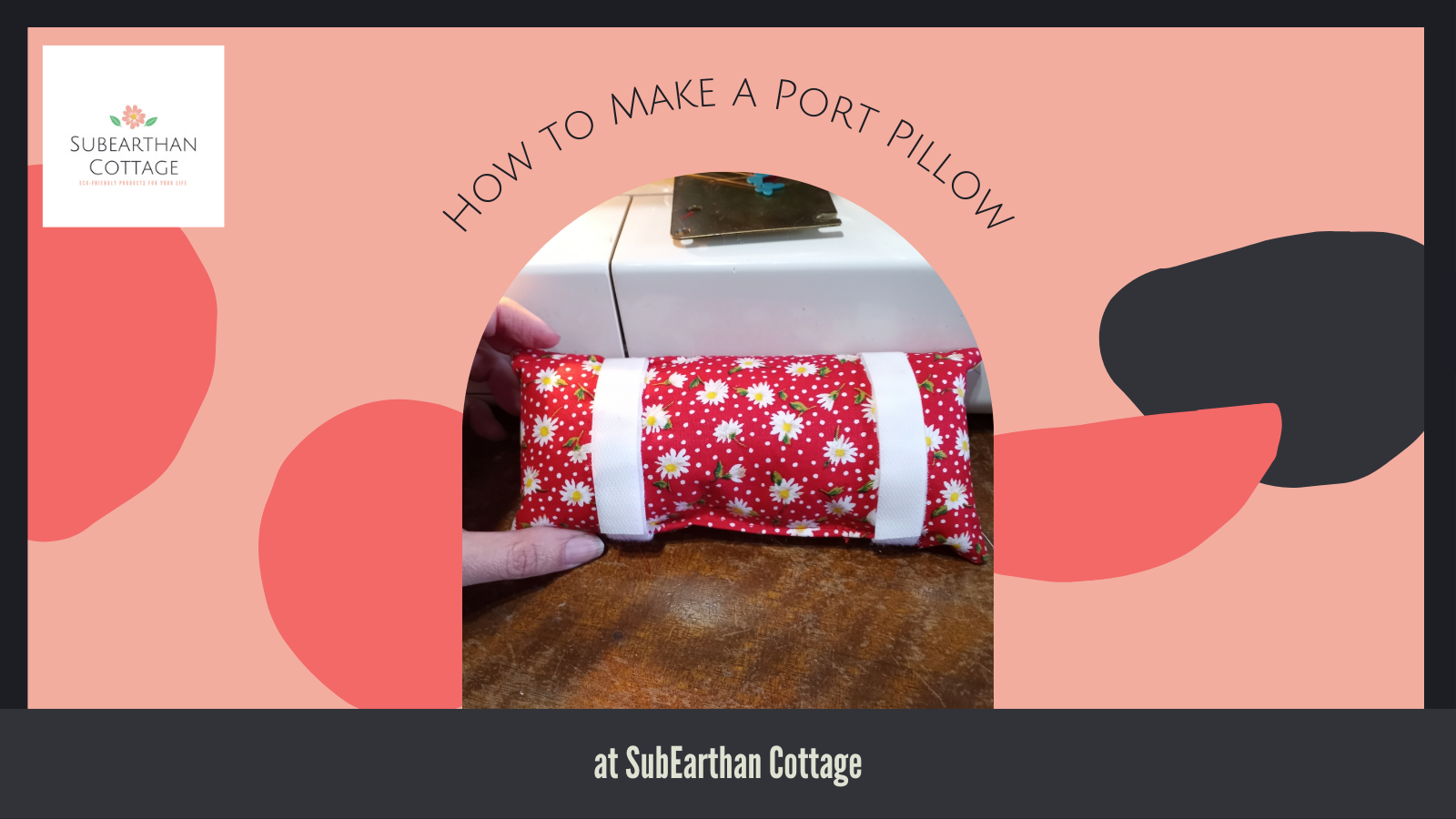
Something that I have found very useful since getting my chemo port put in is a port pillow. Port pillows are small pillows that attach to seatbelts to prevent the seatbelt from irritating the port. Luckily, they are super easy to make with very little materials needed. There are many organizations that accept them as donations to give to cancer patients, so that’s something to consider if you are looking for a charitable way to use up your stash.

Materials needed for One Port Pillow
- 2 rectangles of soft fabric, approximately 4 inches by 7 inches. I like using quilting cotton. There is enough fabric in my soap’s wrapping to make one pillow, so upcycle if you have it.
- 2 pieces of hook and loop tape (Velcro) measuring 3.5 inches each.
- Polyfil or other stuffing.
- Thread
Step one: Baste the Velcro
Separate the Velcro pieces and baste them in place on one piece of the fabric close to the edges. I just eyeball the placement at about halfway between the middle and short edge of the rectangle for each Velcro piece. I like to make the softer piece face up, but it doesn’t really matter. You could also use pins to hold it in place instead of basting, but I find machine basting easier.

Step Two: Sew the pillow
Sew the fabric rectangles wrong sides together as shown in the photo below. Be sure to leave an opening for turning. I left the opening on a long side for this one, but it’s easier to sew closed if you leave it on a short side.

Step Three: Turn and Stuff
Clip the corners, being careful not to cut the thread, turn the pillow right side out and stuff. I like to press the empty pillow before stuffing for a crisper look. Just be careful not to melt the Velcro if you do this too.


Step Four: Sew it Closed
If you want the seam hidden, you can sew it closed by hand. I don’t mind the seam, so I use my machine to make it quick. This is much easier when the opening is on the end as evidenced by the number of pins I used to hold it closed. I hate using pins.

Done
The end result should look something like this.

This is one of those projects that I’ve done so often I may have overlooked something in trying to tell someone else how to do it. If anything is confusing, please ask in the comments. I will clarify it ASAP.
Like this post? To make sure you don’t miss out on future posts, sign up for my newsletter.

